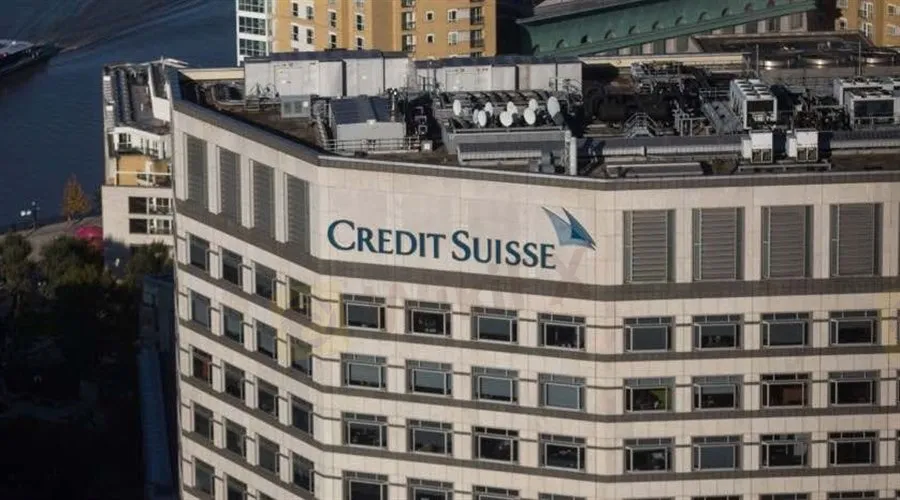简体中文
繁體中文
English
Pусский
日本語
ภาษาไทย
Tiếng Việt
Bahasa Indonesia
Español
हिन्दी
Filippiiniläinen
Français
Deutsch
Português
Türkçe
한국어
العربية
Data Leak Shows Credit Suisse’s Criminal Clientele, Bank Denies Wrongdoings
Abstract:It took deposits from drug traffickers and individuals involved in other serious crimes. It is also fighting allegations of money laundering lapses in a Swiss court.

Credit Suisse, which is trying to clean its image from various scandals, has found itself in the middle of another controversy. A massive data leak exposed that the Swiss private bank had taken deposits from several unsavoury clients pointing to a failure in its due diligence process.
German daily Sueddeutsche Zeitung received the leaked information of the bank accounts which it later shared with the Organized Crime and Corruption Reporting Project and 46 other news organizations. They studied the details of the accounts linked to 30,000 Credit Suisse clients that were held over decades, from the 1940s to 2010s.
These accounts collectively held $100 billion in deposits. But, some of it took deposits from clients involved in drug trafficking, money laundering, corruption and other serious crimes. Moreover, the bank received deposits from autocrats and suspected war criminals.
No Wrongdoings
However, the Swiss lender denied all of the claims made by the news organizations based on the leaked data.
“Credit Suisse strongly rejects the allegations and insinuations about the bank's purported business practices,” the bank said in a statement released on Sunday.
“The matters presented are predominantly historical... and the accounts of these matters are based on partial, inaccurate or selective information taken out of context, resulting in tendentious interpretations of the bank's business conduct.”
In addition, it said that 90 percent of the reviewed accounts in question were closed or in the process of closing when the private lender received inquiries from the consortium of news outlets. Further, it added that 60 percent of the accounts were closed before 2015.
“Of the remaining active accounts, we are comfortable that appropriate due diligence, reviews and other control-related steps were taken in line with our current framework. We will continue to analyze the matters and take additional steps if necessary,” Credit Suisse added.
The reports from the data leak came when the lender is fighting a legal battle with the Swiss prosecutors in the court over allegations of serious lapses in following anti-money laundering rules and allowing laundering of proceeds of a drug trafficker. Furthermore, the bank posted a $2.17 billion loss for Q4 of 2021, mostly due to its litigation provisions.

Disclaimer:
The views in this article only represent the author's personal views, and do not constitute investment advice on this platform. This platform does not guarantee the accuracy, completeness and timeliness of the information in the article, and will not be liable for any loss caused by the use of or reliance on the information in the article.
Read more

How to Automate Forex and Crypto Trading for Better Profits
Find out how automating Forex and crypto trading is changing the game. Explore the tools, strategies, and steps traders use to save time and maximize profits.

Is Infinox a Safe Broker?
INFINOX, founded in 2009 in London, UK, is a regulated online broker under the UK FCA. It offers diverse trading instruments like forex, stocks, commodities, indices, and futures. Clients can choose between STP and ECN accounts and access educational resources. With 24/7 customer support, INFINOX aims to empower traders with reliable tools and guidance.

Is Your Zodiac Sign Fated for Stock Market Success in 2025?
The idea that astrology could influence success in the stock market may seem improbable, yet many traders find value in examining personality traits linked to their zodiac signs. While it may not replace market analysis, understanding these tendencies might offer insights into trading behaviour.

Good News Malaysia: Ready for 5% GDP Growth in 2025!
Malaysia's economy is on track to sustain its robust growth, with GDP expected to exceed 5% in 2025, according to key government officials. The nation's economic resilience is being driven by strong foreign investments and targeted government initiatives designed to mitigate global economic risks.
WikiFX Broker
Latest News
BI Apprehends Japanese Scam Leader in Manila
Bitcoin in 2025: The Opportunities and Challenges Ahead
Join the Event & Level Up Your Forex Journey
Is There Still Opportunity as Gold Reaches 4-Week High?
Bitcoin miner\s claim to recover £600m in Newport tip thrown out
Good News Malaysia: Ready for 5% GDP Growth in 2025!
How to Automate Forex and Crypto Trading for Better Profits
Breaking News! Federal Reserve Slows Down Interest Rate Cuts
Beware: Pig Butchering Scam Targeting Vulnerable Individuals
This Economic Indicator Sparks Speculation of a Japan Rate Hike!
Currency Calculator






